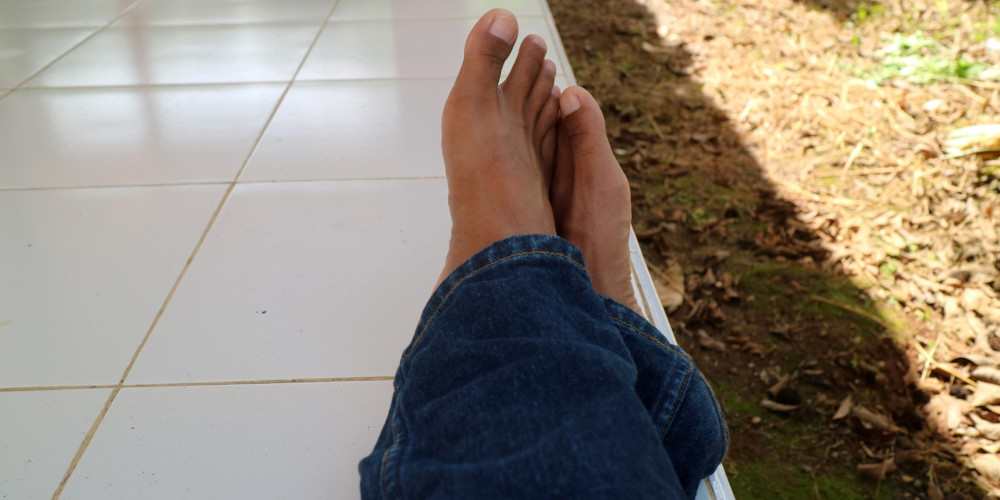It’s one of the hardest conversations in addiction recovery, the moment when someone says, “Rehab didn’t work for me.” It’s usually said with quiet frustration, or bitterness, or shame. And yes, sometimes, it’s true. Not every rehab is good. Not every program fits every person. There are bad facilities, underqualified staff, and broken systems.
But often, the truth is more complicated. Sometimes rehab doesn’t fail, we do. Or rather, the part of us that’s still clinging to control, denial, and the illusion of self-sufficiency does. Because recovery doesn’t happen by osmosis. You can’t just stand in the building and expect it to heal you. You have to surrender to it, fully, honestly, and painfully. And for many people, that’s the one thing they never truly did.
The Comfortable Blame Game
Blaming the rehab is easier than facing the mirror. It keeps you safe from guilt. It keeps the narrative tidy, “I tried, they failed.” It allows you to hold onto your pride, your victimhood, and your certainty that you were the exception. But healing doesn’t begin in comfort. It begins in confrontation, the moment you stop saying “it didn’t work” and start asking “why didn’t I work it?”
That question hurts. It exposes everything addiction hides, ego, fear, self-deception. But it’s also the doorway back to power. Because as long as you keep blaming something outside of yourself, you’ll stay stuck exactly where you are.
Rehab Isn’t a Cure, It’s a Catalyst
The biggest misunderstanding about rehab is that it’s supposed to fix you. That after 28 days, you’ll walk out reborn, balanced, and immune to relapse. That’s not how it works. Rehab is not a magic switch, it’s a crash course in reality. It’s a controlled environment designed to show you who you are without your coping mechanisms. It strips away your distractions, your substances, and your usual escapes, leaving you face-to-face with yourself.
If you go into that process expecting rescue instead of responsibility, you’ll miss the point. You’ll see structure as control, accountability as punishment, and confrontation as attack. Rehab gives you tools. What you do with them when you leave, that’s where recovery really begins.
The Ego That Refuses to Die
The most common saboteur of recovery isn’t relapse, it’s ego. The ego hates humility. It can’t tolerate powerlessness. It insists, “I’ve got this,” even when everything is falling apart. So when rehab challenges your defences, the ego panics. It starts plotting its escape:
“They don’t understand me.”
“The counsellor is judging me.”
“This program’s outdated.”
“I’m not like these people.”
Sound familiar? That’s not your intuition, that’s your disease fighting for survival. Ego whispers just enough logic to keep you from surrendering. It convinces you that participation is weakness and vulnerability is humiliation. And if you believe it long enough, you’ll walk out the door convinced the program failed, when in reality, it was never given a chance to work.
The Subtle Ways We Sabotage Ourselves
Self-sabotage in rehab rarely looks dramatic. It’s not storming out or relapsing on-site. It’s quieter. Sneakier. It’s nodding through sessions while mentally checking out. It’s hiding behind half-truths in group therapy. It’s talking about everyone else’s problems but never your own.
It’s pretending to engage while staying emotionally distant. And sometimes, it’s even performing recovery, saying all the right things, doing all the right tasks, without ever meaning any of it. You can fake surrender to everyone but yourself. Deep down, you know when you’re still holding back. And that resistance, that small corner of denial, is enough to rot the whole process.
The Fear of Real Change
Let’s be honest, failure in rehab often comes down to fear. Recovery asks for everything, your honesty, your comfort, your identity. It demands that you dismantle who you were and start over. And for people who’ve survived years of chaos, that kind of vulnerability feels like death.
Addiction may destroy you, but it’s familiar. You know its rules. You know its rewards. Recovery, on the other hand, is uncertain. You don’t know who you’ll be without the substance, the behaviour, or the story that defined you. So even when people say they want to heal, part of them clings to the past, because it’s safer than the unknown.
Healing threatens the part of you that believes pain is all you deserve. That’s why so many people sabotage their own recovery, they’re not afraid of failure, they’re afraid of freedom.
When Control Disguises Itself as Effort
One of the sneakiest forms of sabotage looks like hard work. Some people over-participate. They fill notebooks, volunteer for every group, talk endlessly about “growth.” They perform recovery with perfectionistic precision. But underneath, they’re still controlling. They’re still trying to manage healing instead of surrendering to it. They turn recovery into another addiction, a new way to avoid vulnerability.
Because true recovery isn’t about doing more, it’s about doing less. It’s about honesty over activity. It’s about letting go of the illusion that you can earn your way out of addiction.
The Myth of the Perfect Program
It’s easy to romanticize the idea that there’s a “right” rehab out there, the perfect blend of therapy, routine, and environment that will finally make everything click. But the truth is, no program works without your full participation. The effectiveness of rehab has less to do with the facility and more to do with your willingness to be uncomfortable.
There’s no therapist skilled enough, no group supportive enough, to make you heal if you’re still protecting your pain. Rehab isn’t about finding the perfect conditions, it’s about using imperfect conditions to confront yourself honestly. Because healing doesn’t need perfection, it needs presence.
The Psychology of Resistance
If you’ve ever found yourself thinking, “I tried rehab and it didn’t work,” pause and ask what “didn’t work” actually means.
Did you go through detox but skip therapy?
Did you attend sessions but never open up?
Did you finish the program but go straight back to the same people and triggers?
That’s not failure, that’s unfinished work. The brain loves old patterns. It equates change with threat. Resistance is its way of saying, “Stay safe, stay familiar.” But familiar isn’t safe. It’s just predictable. And predictability is the drug the ego can’t quit.
The Hardest Lesson
The truth that most people only learn after relapse is this, no one can do recovery for you. Not your counsellor, not your partner, not your rehab. They can guide, support, and challenge you. But they can’t surrender on your behalf. They can’t choose honesty for you. They can’t fight your denial.
That part is yours. Always has been. Always will be. That’s why some people thrive in mediocre programs while others fail in world-class ones. Because recovery isn’t about the surroundings, it’s about the surrender.
Taking Accountability Without Shame
Acknowledging that you sabotaged your own recovery isn’t about blame. It’s about reclaiming agency. It’s saying, “I wasn’t ready then. I resisted. I lied. I protected my pain.” That’s not self-punishment, that’s self-awareness. It’s the moment you stop being a passive patient and start being an active participant in your own healing.
You can’t change the past, but you can change your posture toward it. Instead of saying “rehab failed me,” you can say “I wasn’t ready yet, but I am now.” That small shift in ownership changes everything.
The Rehab That Works
Rehab works when you do. It works when you show up, not as the version of yourself you want others to see, but as the one you’ve been avoiding. It works when you let yourself be humbled. When you stop managing the process and let it manage you.
It works when you stop looking for miracles and start telling the truth. Because the miracle of recovery isn’t in the building, it’s in the willingness to walk through your own resistance, again and again, until it stops defining you.
The Real Measure of Success
Maybe you’ve been to rehab once. Maybe five times. Maybe ten. You might think that means you’ve failed. But relapse doesn’t mean you didn’t learn anything, it means you weren’t done learning yet. Every failed attempt holds data. Every time you ran, resisted, or shut down, you learned something about your fear. You discovered where the denial still lives. That’s progress, even if it doesn’t look like it.
Success isn’t about getting it right the first time. It’s about staying honest enough to try again, without excuses, without ego, without blame.
The Choice That Remains
So if you’re standing at the crossroads, thinking about trying again, afraid it’ll be another waste of time, remember this, rehab can only take you as far as your willingness allows. The facility isn’t the answer. You are. The question is whether you’re finally ready to stop managing your recovery like a project and start living it like a truth.
Because the rehab that failed might not have failed at all. It might have just shown you exactly where your denial still lives. And this time, you can walk back through those doors, not as a sceptic, not as a survivor, but as someone finally ready to surrender.




